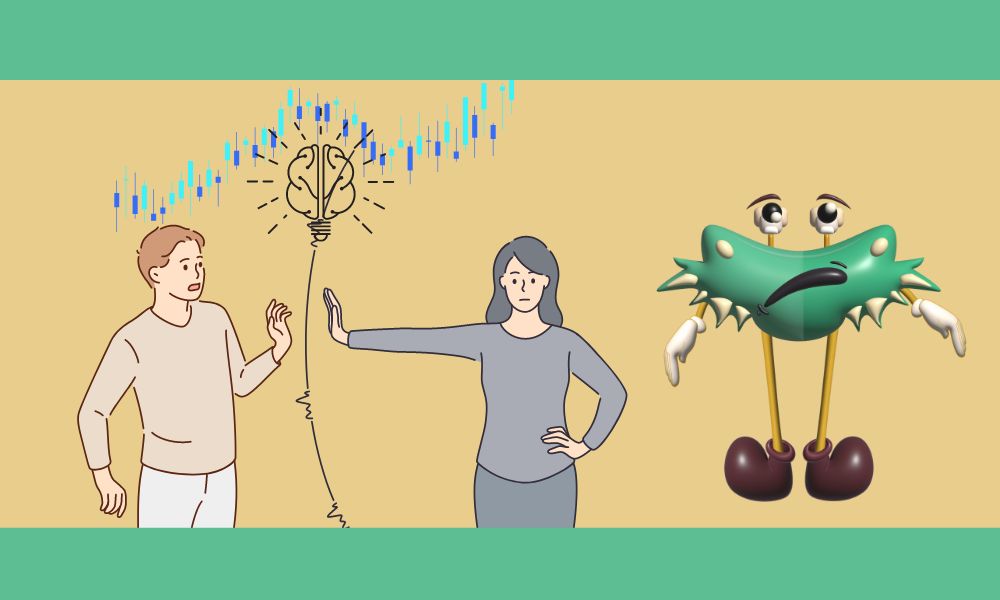Trading psychology is the study of how a trading's feelings and state of mind affect his or her chances of success or failure.
Trading psychology refers to the different parts of a person's personality and behavior that affect their trading decisions.
Trading psychology can be just as important as knowledge, experience, and skill in determining how well a trading does.
Professionalism and taking risks are two of the most important parts of trading psychology, as their use is crucial to the success of a trader's trading plan.
Fear and greed are often linked to trading psychology, but hope and regret are also important parts of trading behavior.
Trading Psychology: Common Mistakes To Avoid
1.Overconfidence
People who seem confident and in charge of their lives are often looked up to as good examples.
But in the trading world, having too much confidence can be bad.
Say you place a trade. For some reason, it starts to go against you.
Surely, the confusion on the market will only last a short time, and the outcome will be as expected, right?
If you're the kind of person who can't handle even a small loss, it could end up costing you a lot.
If you're in this group, don't forget to set your stops as soon as you finish a trade. Don't count on willpower alone to keep from losing money.
2. Too Much Hopium
Some people do not like details. They are moved to get up and go. They can't think ahead. This might not be good for your trading account.
If the only reason you buy a stock is because of the hype, you won't know why or when to sell.
Anything worth having needs to be planned for. If you decide to follow "hot" advice, make sure you do your own research. And use a trading strategy at all times.
3. Expecting Perfect
It's hard to be separate from what you do for a living. But you can never have full control over the market.
After a losing streak or a big loss, it might be hard to keep your confidence up. Losing is never easy, but it's a part of the game that has to happen.
The smartest traders know that they will always lose money.
They don't give up when things don't go their way. If you limit how much you can lose, you can lose trades and still be a good trader.
4. Wanting to be right
A trader who does well is one who studies hard. You must be an eternal student.
Even though I've been in trading for decades, I still read as much as I can about it.
Some people trade because they don't like having to answer to someone above them.
They want to be free and on their own. I understand. And trading can help you do that. Still, it will make you feel small.
You can learn as much as you can from other traders, teachers, books, videos, and the market itself.
You can't blame the market if you have better luck with one pattern than another. Keep your attention on what works!
5. Analysis Paralysis
It is important to look at the market and come up with a plan for trading.
But you also have to be willing to take risks and keep going, whether you succeed or not.
Some people are hesitant to start something new. But it's impossible to know everything right away.
It takes years of practice to get a feel for the market... Also, there are still more things to learn.
You have to get into the pool at some point. You can't change how you see things if you never take real risks.
You can and should start by putting up small amounts of money, but you have to jump in.
Hopefully, avoiding these mistakes will help your Trading Psychology.


Comments
Post a Comment